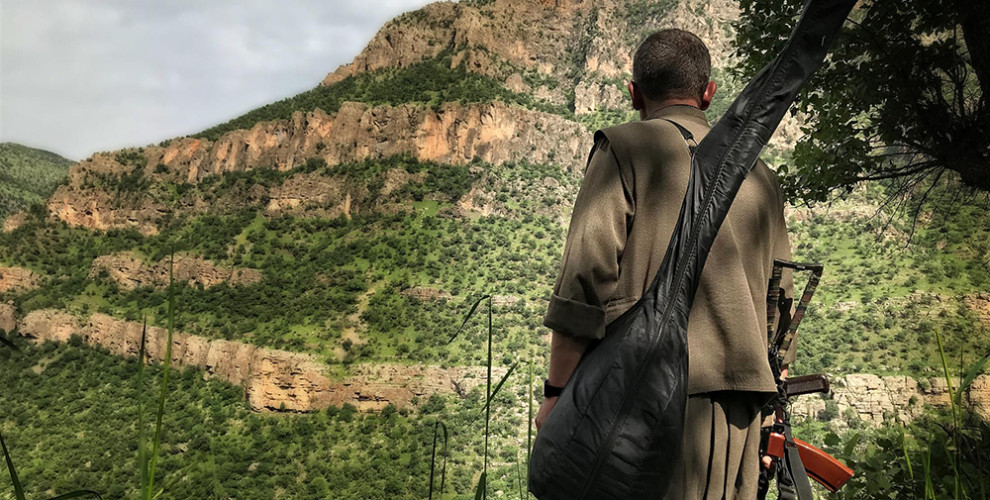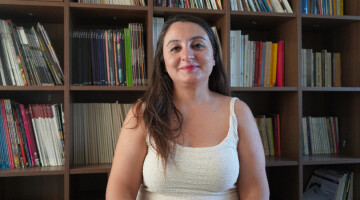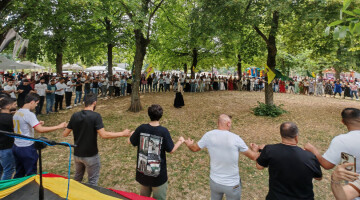While resistance on the one hand continues in the Zagros mountains of Kurdistan, on the other hand the guerrillas devote themselves to art. Regardless of the conditions, the fighters hold on to life as well as to the art and culture that is a natural part of life. No matter where we were in the Medya Defense Zones, all guerrilla fighters turned to the arts. The forms are very diverse. Some draw, others write novels and others make music.
On August 9, Rizgar Oremar lost his life in the northern Kurdistan town of Gever (Yüksekova) in a battle with the Turkish army forces. Together with one of his comrades, he fought heroically to the last ballet. A few days before, we had met him for a chat in the Zagros Mountains, scene to the toughest conflicts. Rizgar carried his weapon in one hand and the baglama, a stringed instrument, in the other.
What was your life like before joining the guerrilla?
My name is Rizgar Oramar. I come from the village of Oramar in Hakkari. In 1994, I got to know the Kurdish freedom movement. At that time the comrades would come to our village from time to time. I was deeply impressed by them. Until then, we had only seen soldiers and village guards carrying weapons. They always acted as if the whole world belonged to them. The comrades also had weapons, but they were always very respectful and friendly towards us. After some time, we moved to the center of Gever district, because of the state oppression. Once there, we started to get involved politically.
And how did you decide to join the guerrilla?
Above all, the isolation of Ocalan and the death of the comrades who came to our village influenced my decision. Before that, I had twice considered joining the guerrilla, but had not been able to do it somehow. Ultimately, I managed to realize my dream. At the third attempt the comrades gave their okay. My family is patriotic. I have four children.
When did you start playing baglama?
I sing since my childhood. In general, our family had a strong connection to music, especially the Dengbêj culture. Many family members, who belonged to the older generation, sang the Kurdish folk songs back then. I had a great interest in baglama yet as a child, but at that time our economic situation did not allow us to buy an instrument. That's why I made my own instrument out of a wooden box, teaching myself how to play.
The place of baglama in my life has always been special. But with age, I started to play the instrument less and less often. Since I joined the Freedom Movement, I have been inspired by the mountains of Kurdistan. Here in the mountains there is a very special harmony, which the guerrillas adopt themselves to. You get the feeling of being part of nature. To me, music is the harmony of guerilla and nature."
At the end of the conversation, we asked Rizgar to sing a song for us. He did not refuse the request. When we heard his voice we wished nothing but to convey it from the mountains to villages, from villages to cities. The voice of Oramar, which has always echoed in these mountains, becomes eternal.















